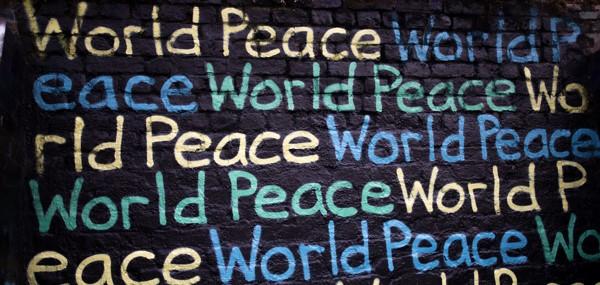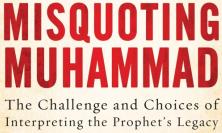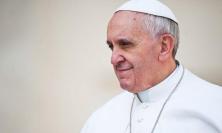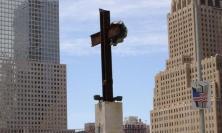On 4 February 2019, Pope Francis and the Grand Imam signed a Declaration on Human Fraternity, a document that they hoped would ‘serve as a guide for future generations to advance a culture of mutual respect in the awareness of the great divine grace that makes all human beings brothers and sisters.’ One year on, James Hanvey SJ encourages us to pay close attention to this text, the publication of which is in itself an act of great significance.
Often, it is only in retrospect that we come to see the significance of a document or an action. The British historian of political thought, Quentin Skinner, argues that we should see great political texts as acts, significant interventions in the political and social crises of the time. This is true of religious texts as well.
In Abu Dhabi on 4 February 2019, Pope Francis and the Grand Imam of Al-Azhar, Ahmad el-Tayeb signed a Declaration titled Human Fraternity. It is an inspiring and challenging prophetic act of intervention. In it, the two world religions make an appeal to us in God’s name and in the name of the suffering and powerless in our societies. In God’s name, too, the Declaration summons us to a new future. By its very existence, the Declaration itself shows us the way; it demonstrates that Islam and Christianity can work together for the universal good.
We know how easily the teachings of Islam and Christianity can be distorted for divisive and destructive ends. Yet, in the Abu Dhabi Declaration, all believers are called to reject religious ideologies and seek a creative, healing peace – a peace that always allows room for the other.
Both Christianity and Islam share a profound faith in God’s mercy and compassion. It is this that each recognises in the other. Out of this experience and on behalf of their faiths, Pope Francis and the Grand Imam speak to a complex and fractured world. Faith does not look through our human eyes only. Taught by God, it tries to see our world in a new light, God’s light. The Declaration names the suffering, exploitation, human and ecological destruction, violence, and the ways in which the patterns of human dysfunction register in vulnerable lives. Faith in God, who hears the cry of the poor, opens our ears to the voice of the forgotten and powerless. In the name of this merciful and compassionate God, the Declaration makes visible to our eyes those who have been written off as collateral damage in pursuit of larger economic and geo-political goals. To our ears, it gives voice the voiceless ones whose cries never reach above the noise of the international stock markets or the conversation of the politicians at their dinner tables and in their debating chambers.Yet, if faith can give us insight into the evil in our world, it can also give us courage to hope. Such hope is not an abstract utopian vision, the type that can be generated by any totalitarian or neo-liberal system. A clear-eyed faith not only sees the inhumanity around us, it also sees the capacity to change, to bring forth something better for everyone, whatever their religion or nationality. It knows, too, that this cannot be done without the courage and the perseverance that faith can give. It can see that we are not alone in this work. God has not deserted us. This very God that some would use to divide us calls us to harness all our intelligence and will to build a more humane, just and compassionate world. A world that reflects the divine goodness rather than obscures it.Pope Francis and the Grand Imam witness to God’s merciful activity in our world. Their Declaration offers the realism of a hope grounded in faith. It witnesses to the desire of both religions to see humanity flourish – an antidote to the despair and the nihilism that hides in the heart of secularism. Such faith allows us to order our will and our gifts to bring about a world where peace is attainable, and justice is real for all.
Human Fraternity recognises that the right to religious freedom is one of the central conditions for this reconstructive and redemptive work. Contrary to many voices, this cannot be achieved through the suppression, abolition or manipulation of religion, or through the political hegemony of one religion over another. The defence of religious freedom is the touchstone of a genuinely free society. Religious freedom is the freedom to acknowledge the claim of transcendence within the human soul; to recognise and accept difference as part of the gift of plurality that God has bestowed on the whole community of creation, not least humanity. This is a radical freedom, a freedom from all the contemporary illusions that tie us into lifestyles that disguise our imprisonment. The Declaration also develops the centrality of other rights in a just and humane society: as a call to protect the most vulnerable, it emphasises the right to life. This right not only belongs to individuals of every age, it belongs to whole communities. It is a right that is a fundamental defence against the horrors of genocide that still continue to haunt so many peoples. Human. Fraternity recognises, too, the fundamental rights of women to education and employment; it rejects anything that deprives women of their dignity. It defends especially the rights of the family and of children, for these are humanity’s hope.
The Declaration is not so much a call to arms as a call to work. Neither Pope Francis nor the Grand Imam are engaged in some rhetorical exercise. They are summoning us to begin the work of making a better world. They themselves are actively engaged in this work. The Declaration commits these two great faiths to the common task of building societies committed to justice, equity, peace; societies that seek to cherish and protect the most vulnerable, regardless of their status or ability. Together, they set out the means, which start with creating a culture of dialogue and cooperation. Through a dialogue that is humble and open to the other, which they have begun to model, we can find the way to achieve deeper understanding, mutual respect and reconciliation, not only between believers but with non-believers as well. And dialogue proves itself a generative act when it becomes a habit that is embedded in our thinking, our systems and ways of working.
Here, the Society of Jesus is well placed. It already has an extensive network of professional academic commitments to interreligious dialogue. Through its networks of schools and universities it has great potential to facilitate a mutual dialogue of recognition, understanding and reconciliation at every level. In its work for refugees, social justice and ecology, it has co-workers and collaborators from many faiths. They show us that if suffering, deprivation, exile and loss do not discriminate between peoples or religions, neither can our response.
Likewise, we must work for a deeper understanding of the God who is the substance of our faith. Even when we acknowledge our differences, we can see that it is God who draws us together and will not let us cease the works of mercy and compassion, justice, dignity and peace. Indeed, it is this very God who cannot be made an obstacle to this work, but always calls us to transcend our limits. In service of this God, we discover that we can be greater than we can ever imagine. Human Fraternity is certainly an act of intervention that sets out the task and reminds us of the audacity of hope. In doing so, it gives the lie to the secular myth that faith in God has no future.
James Hanvey SJ is the Society of Jesus’s Secretary for the Service of Faith.






